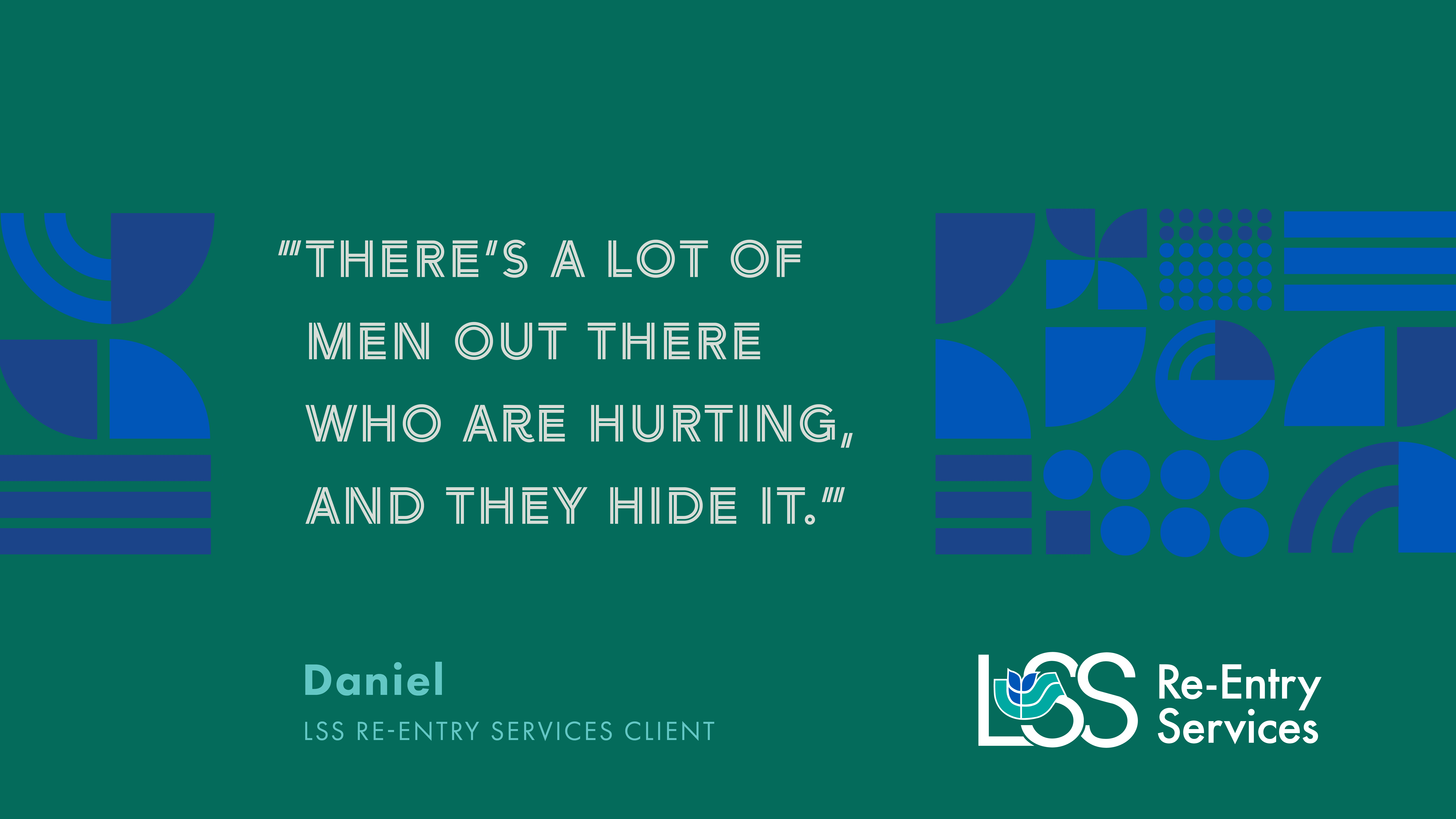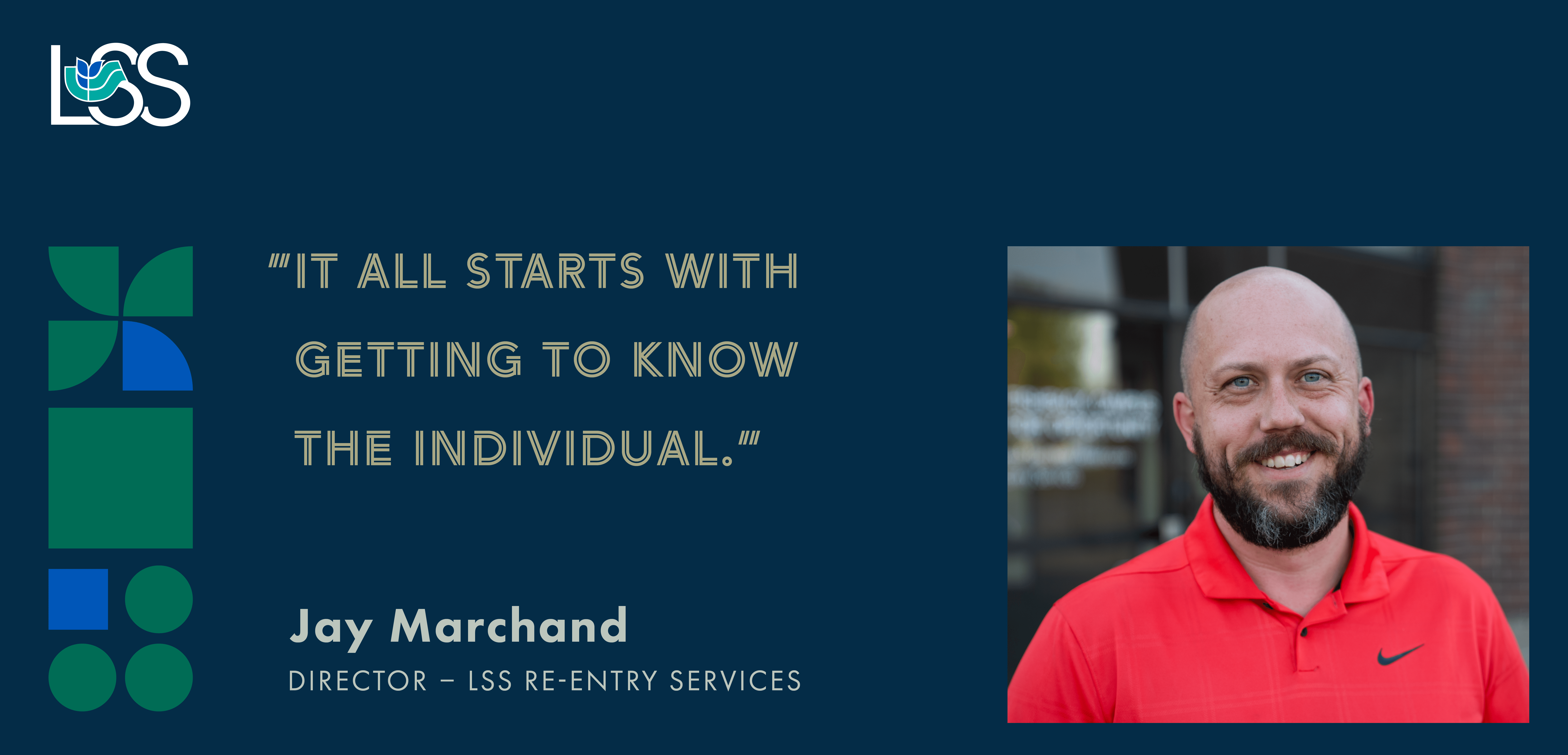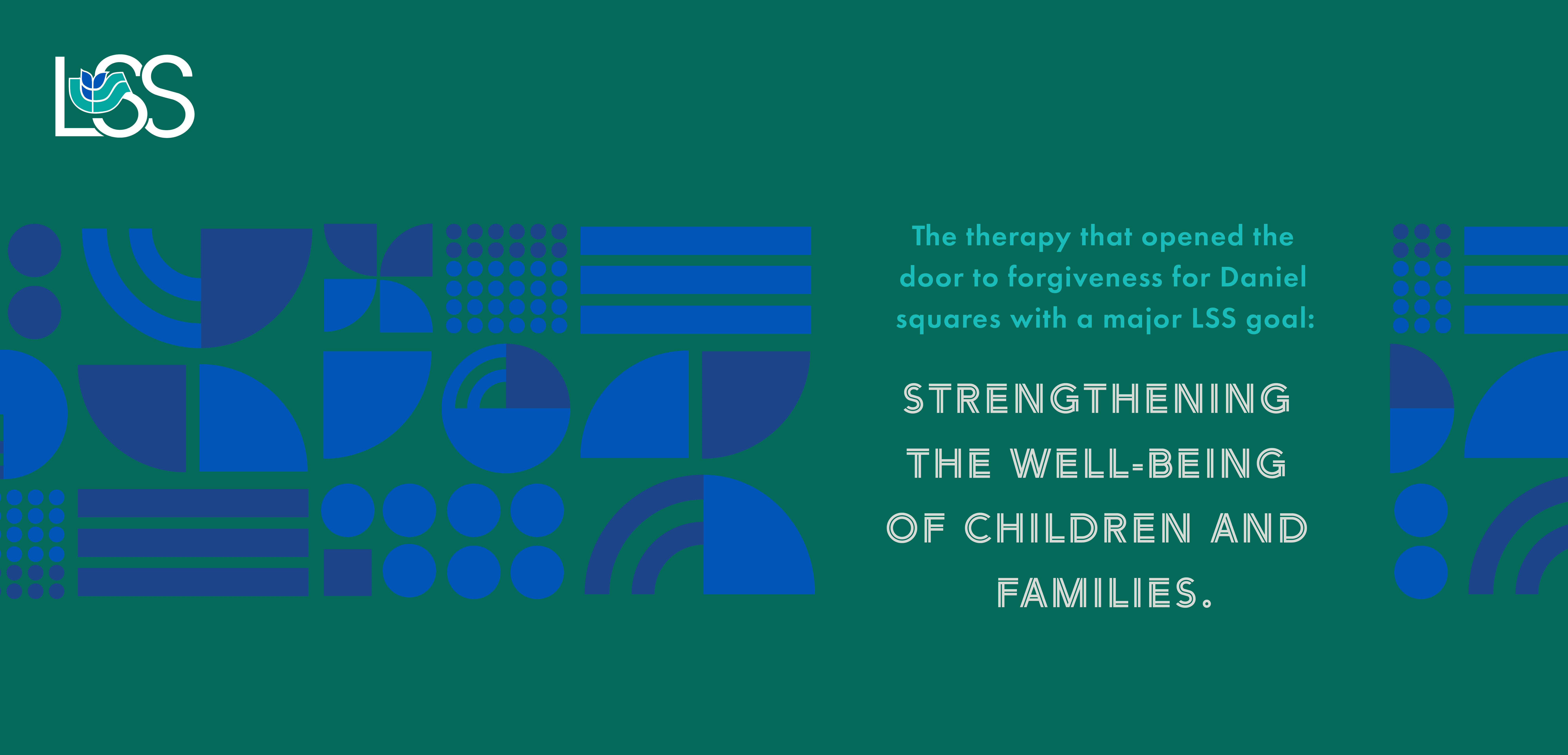Re-Entry Services Promotes Healing and Growth
The far-ranging work of LSS touches the lives of people from a wide variety of backgrounds, all undertaken with the aim of ensuring that all people are healthy, safe and accepted.
Providing services to individuals who are transitioning from correctional facilities, group homes and chemical dependency treatment back into their home communities gives them the coping mechanisms to help keep families healthy and safe — healthy families, healthy communities.
In the case of LSS Re-Entry Services, that often involves creating a safe space for those who’ve made others feel unsafe. That, in turn, creates a path to personal awareness and growth that can help them heal both themselves and those they’ve hurt.
Daniel needed precisely that.
Daniel didn’t drag his wife out of a man’s vehicle or strike her with an elbow because he was drunk. His .21 blood alcohol content – more than double the legal limit to drive – didn’t force him to fight the other man either.
His actions had nothing to do with the people he attacked. He acknowledges that today.
“The alcohol did not make me do what I did. It was many years of unfinished business that my wife and I never had closure on,” said Daniel, who recently graduated from a six-month Abusive Partner Intervention Program with LSS.
‘It exposes the stuff you’re hiding’
The issues and toxic behavioral patterns he’d brushed off or failed to recognize altogether had become fuel for violence, Daniel said. Before the group sessions with LSS, he didn’t realize how he’d made himself distant and unapproachable by controlling finances and travel schedules. He didn’t recognize the mind games he’d used or how they’d served to trivialize his wife’s feelings, even as their struggles mounted.
“Through a lot of honesty and openness, it exposes you to the stuff you’re hiding,” he said. “It all started somewhere, and we all (in the class) have made any excuse that we could use to shift the blame from us.”
The 39-year-old soldier with four children to look after credits LSS Re-Entry for nine months of sobriety and the hard-won clarity that’s put his family on a path to healing. Initially, he saw the classes as a chance to show his commitment to change before sentencing. The course was offered up as an option by his judge, one he accepted readily as an alternative to a stiffer sanction.
As the group sessions teased out his troubles, though, his gratitude for a shot at grace gave way to gratitude for the chance to identify and break the patterns that put him in jail in the first place.
“It’s unfortunate that I had to learn this at 39, but I’m glad I’m getting it at 39 versus when I’m an older man on my deathbed with all these regrets,” Daniel said. “There’s a lot of men out there who are hurting, and they hide it through all these things that are going to put them in a worse situation.”

Hundreds helped by Re-Entry programming
That’s precisely the kind of takeaway Jay Marchand likes to hear about. Marchand is the director of LSS Re-Entry Services and leads several of the nonprofit’s 13 abusive partner groups across the state, including Daniel’s.
Understanding domestic violence, Marchand said, is a measure of understanding the person who engages in it: their beliefs, their upbringing and life experiences, their habits and unacknowledged aggressions and often their own history of abuse.
Through the weekly meetings, Marchand said, “a lot of them are able to verbalize their thoughts and beliefs, and understand how those things connect to their actions.”
Most men who participate in the Re-Entry program arrive after a criminal charge of domestic violence, Marchand said, but not all of them end up in a group. Placement in the 24-step program begins with an assessment. That involves a look at the person’s criminal history, an interview with the person and statements from the victim, all of which are filtered through a risk assessment instrument that calculates the person’s likelihood of re-offending.
In some cases, Marchand said, anger management, drug and alcohol treatment or general mental health help are more appropriate paths.
“It all starts with getting to know the individual,” he said.
LSS began to take a more methodical and collaborative approach to risk assessment in 2020.
“For too long in this line of work, we’ve just said ‘domestic violence? Go to group,'” Marchand said. “We’d been missing a lot of things.”

Since 2020, LSS has done 557 assessments statewide, and about 60 percent of those who’ve signed on for programming have completed their work.
Given how entrenched patterns of abuse can be, the painful nature of public accountability, the prevalence of repeat offenses and the time commitment involved, Marchand sees that 60 percent completion rate as a powerful endorsement of the LSS approach.
“Men who’ve abused, that they continue to show up week after week … that’s a big deal,” he said.
Most groups meet in person, with options for virtual attendance offered to ease the burden of juggling work and school schedules. LSS also offers programming for women, federal and state-level inmates and parolees, and one group in Spanish. LSS is working with the University of South Dakota to assess re-offense rates. It’s too early to draw solid conclusions, but Marchand said “we are seeing positive results.”
Ultimately, the classes can offer tools only to those who wish to break a cycle of violence.
“It’s their choice on a daily basis if they used those skills or not,” Marchand said.
A Brighter Path Forward
Daniel believes he and his family are in a better place now. Months of healing have added up alongside his virtual group sessions, and he sees a healthy path forward for the first time in years.
“Everyone has their rock bottom, and this was my rock bottom,” he said. “There’s been a lot of forgiveness this whole year.”
The therapy that opened the door to forgiveness for Daniel squares with a major LSS goal: strengthening the well-being of children and families. It represents just one of a host of re-entry services available through LSS, all of which can have an impact on family cohesion and healing.

Inmates, for example, engage with LSS as they move toward a transition to the general population — and reunification with their families — from one of South Dakota’s correctional institutions through a variety of programming.
LSS also offers re-entry programming for those seeking to rejoin the workplace, and it serves as a key provider in South Dakota of the Moral Reconation Therapy courses used as alternatives to detention.
Follow this link to learn more about LSS Re-Entry Services.
October is National Domestic Violence Awareness Month. If you or someone you know needs help, call the National Domestic Violence Hotline at 800-799-7233.

